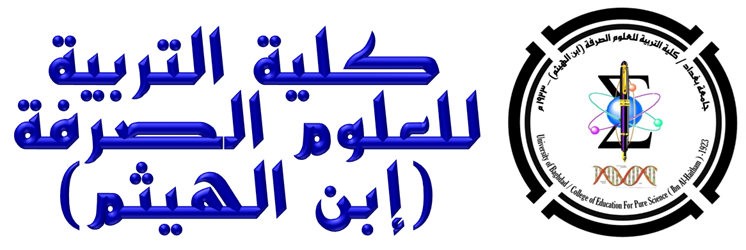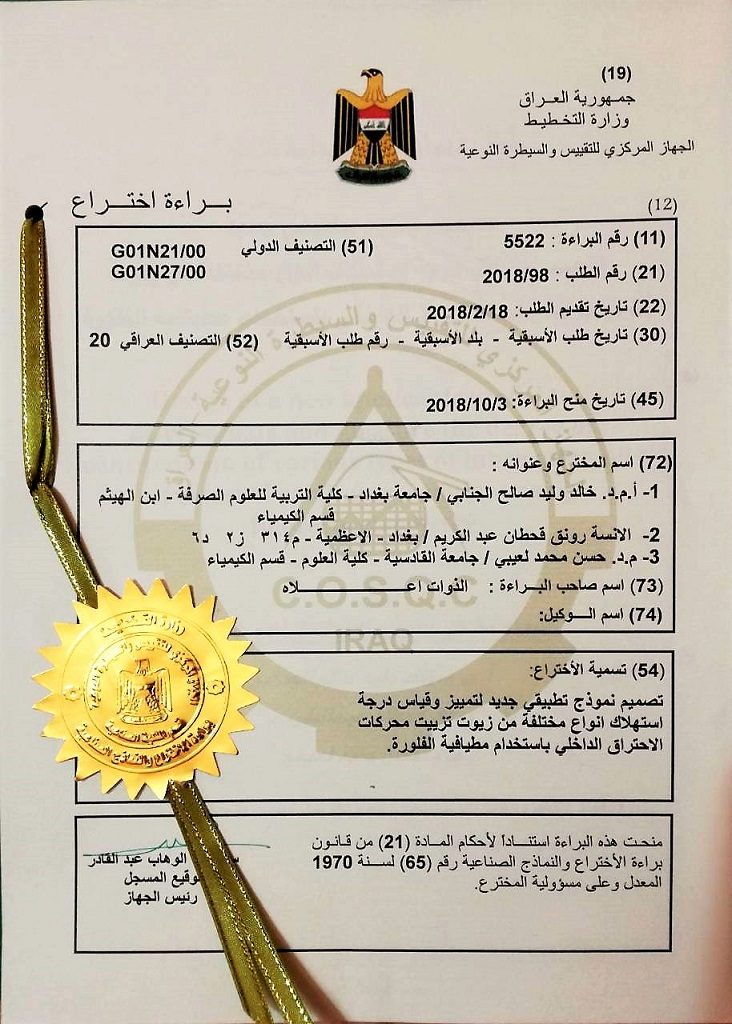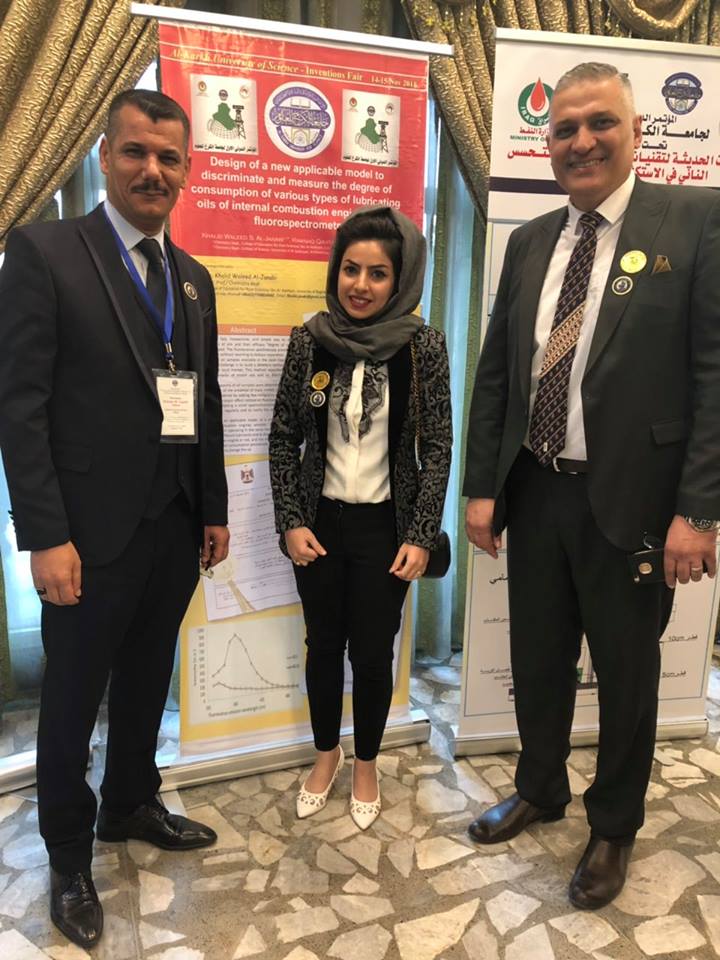حصل التدريسي في قسم علوم الكيمياء الاستاذ مساعد الدكتور وليد خالد صالح الجنابي على براءة اختراع من الجهاز المركزي للتقييس و السيطرة النوعية في وزارة التخطيط العراقية بالرقم (5522) وذلك عن بحثه التطبيقي الموسوم :
تصميم نموذج تطبيقي جديد لتمييز وقياس درجة إستهلاك انواع مختلفة من زيوت تزييت محركات الإحتراق الداخلي بإستخدام مطيافية الفلورة
الذي قام بانجازه بالاشتراك مع كل طالبة الماجستير (رونق قحطان عبد الكريم ) و المدرس الدكتور (حسن محمد لعيبي : التدريسي في كلية العلوم في جامعة القادسية)
وتم في هذا البحث تصميم نموذج تطبيقي جديد باستخدام طريقة سهلة وسريعة وغير مكلفة للتمييز بين أنواع زيوت تزييت محركات الاحتراق الداخلي ولقياس درجة استهلاكها باستخدام تقنية الفلورة.
وقد اجريت هذه الدراسة ابتداءً من عملية جمع النماذج لزيوت تزييت المحركات الجديدة والمستعملة وانتهاءً بأجراء اخر الاختبارات عليها في تقنية مطيافية الفلورة للفترة المحصورة بين تشرين الاول لعام 2016 وايلول 2017. ففي هذه الدراسة تم تحقيق طريقة حديثة وموثوقة للتحري عن نوعية الزيوت دون الحاجة لفصلها بطرق فصل مطولة ومكلفة لعزل مكونات الزيت قبل تحليله او قياسه. تم بهذه الطريقة تحليل عدد من نماذج مختلفة لزيوت محركات جديدة ومستخدمة متوفرة في السوق التجاري العراقي (أجنبية وعراقية الصنع). كما يمكن اعتماد هذه الطريقة للتعرف على العلامات التجارية المزورة لزيوت المحركات وتمييز جودة هذه الزيوت.
وتم تحقيق الادعاءات والمميزات اعلاه لتصميم هذا النموذج الجديد من خلال العمل بدقة علمية عالية وصبر كبير في جعل زيوت تزييت محركات الاحتراق الداخلي الجديدة الغير مستعملة داخل هذه المحركات تعطي اعلى شدة فلورة اي 100% دون فقدان لهذه الشدة من قبل العوامل المخمدة، وبعد ذلك تقل الشدة تدريجياً باستهلاك الزيت نتيجة تشغيل المحركات واستهلاكها للزيت الجديد، لذا تم تصميم النموذج التطبيقي المناسب لهذه الفكرة اعتماداً على ذلك.
ولإثبات ذلك عملياً ومختبرياً تم تثبيت الظروف المثلى لكثير من الظروف والعوامل التي تؤثر على تقليل او اخماد شدة فلورة الزيوت وبالتالي تؤثر سلباً على تصميم هذا النموذج لغرض تطبيقه في افضل ومختلف الظروف.











